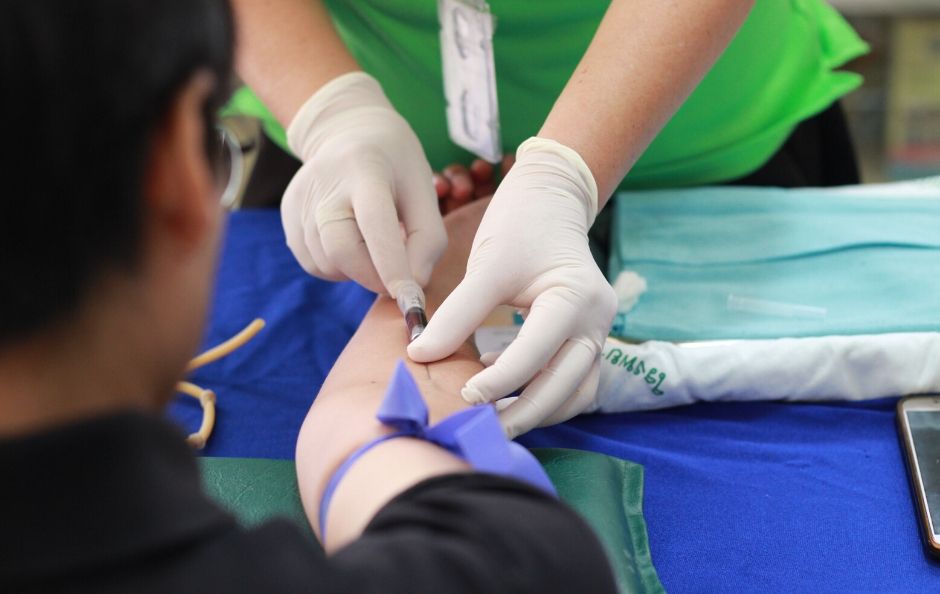Understanding Preventive Healthcare
Preventive healthcare is the practice of taking proactive measures to prevent illnesses before they occur. Unlike reactive healthcare, which treats diseases after they arise zona herbal.net, preventive healthcare focuses on early detection, lifestyle modifications, and vaccinations to maintain overall well-being. Through preventive healthcare, individuals can significantly reduce the risk of chronic diseases such as diabetes, hypertension, and heart disease.
The Role of Regular Check-Ups in Preventive Healthcare
One of the most effective strategies in preventive healthcare is scheduling regular check-ups. These medical visits help in identifying potential health risks before they become severe. Preventive healthcare ensures that early symptoms are detected and treated promptly, reducing medical complications. Routine screenings such as blood tests, cholesterol checks, and cancer screenings are integral parts of preventive healthcare and aid in maintaining a healthy lifestyle.
Healthy Lifestyle Choices in Preventive Healthcare
A healthy lifestyle is a crucial component of preventive healthcare. Consuming a balanced diet rich in essential nutrients strengthens the immune system, while regular exercise helps in maintaining an ideal weight. Preventive healthcare also emphasizes avoiding harmful habits such as smoking and excessive alcohol consumption, which can lead to serious health conditions. Engaging in stress-relieving activities like meditation and yoga is another key aspect of preventive healthcare that promotes mental and emotional well-being.
Vaccinations and Their Impact on Preventive Healthcare
Vaccinations play a vital role in preventive healthcare by protecting individuals from infectious diseases. Immunizations such as flu shots, hepatitis vaccines, and childhood vaccinations contribute significantly to public health. Preventive healthcare encourages vaccination programs to reduce the spread of contagious diseases and build a resilient immune system. Staying updated with recommended vaccines is essential to ensure the effectiveness of preventive healthcare strategies.
Preventive Healthcare and Early Disease Detection
Early detection is a fundamental principle of preventive healthcare. Regular screenings and diagnostic tests help in identifying diseases in their initial stages when treatment is most effective. Preventive healthcare enables timely intervention, reducing the risk of complications and improving overall prognosis. Conditions such as cancer, diabetes, and high blood pressure can be managed effectively through early diagnosis facilitated by preventive healthcare measures.
Mental Health and Preventive Healthcare
Mental health is an integral aspect of preventive healthcare. Stress, anxiety, and depression can lead to various physical ailments, making it essential to address mental well-being. Preventive healthcare includes psychological counseling, therapy, and stress management techniques to promote emotional stability. By integrating mental health care into preventive healthcare, individuals can lead a more balanced and fulfilling life.
Workplace Wellness and Preventive Healthcare
Employers are increasingly recognizing the benefits of preventive healthcare in the workplace. Corporate wellness programs focus on preventive healthcare initiatives such as health screenings, fitness programs, and nutritional guidance. Encouraging employees to participate in preventive healthcare practices leads to a healthier workforce, increased productivity, and reduced medical expenses. Preventive healthcare in the workplace also fosters a positive and energetic work environment.
Preventive Healthcare for Children and Elderly Individuals
Children and elderly individuals require special attention when it comes to preventive healthcare. Pediatric preventive healthcare involves vaccinations, growth monitoring, and nutritional guidance to ensure proper development. Geriatric preventive healthcare focuses on managing age-related conditions, maintaining mobility, and preventing chronic diseases. The implementation of preventive healthcare strategies across different age groups ensures long-term health benefits and an improved quality of life.
Government Policies and Preventive Healthcare
Government policies play a crucial role in the promotion of preventive healthcare. Public health campaigns, free health screenings, and subsidies for vaccinations encourage widespread participation in preventive healthcare programs. Health authorities emphasize preventive healthcare as a cost-effective approach to reducing the burden on healthcare systems. By investing in preventive healthcare initiatives, governments can enhance the overall health of their citizens and create a more sustainable healthcare system.
Conclusion
Preventive healthcare is a proactive approach that helps individuals lead healthier lives by preventing illnesses before they occur. By incorporating regular check-ups, healthy lifestyle choices, vaccinations, and mental health support, preventive healthcare ensures long-term well-being. Governments, employers, and individuals must collectively embrace preventive healthcare to build a healthier and more productive society. The significance of preventive healthcare cannot be overstated, as it holds the key to reducing medical costs, preventing chronic diseases, and enhancing overall quality of life.




